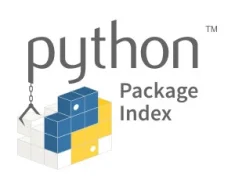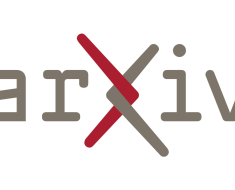An explosion of generative AI technology built on large language models has been released to the market. Both consumers and businesses that service homeowners, such as our digital home management platform, HomeZada, are working on how to incorporate AI technologies to improve the financial management of their homes and how to provide more value to homeowners.
How AI can bring self-service to digital home management
Consumers go through a continuous cycle of homeownership. It starts when you go through the process of buying your first home. Then you go through a journey of trial and error, discovering what it takes to manage, maintain and renovate your specific home in your specific location. Different seasonal weather patterns, different home ages, different renovation projects and different changing financial conditions lead to always changing dynamics. After five to seven years, you may decide it’s time to sell your home and buy another one. This cycle repeats itself multiple times in your lifetime.
Now think about all the endless questions and interactions with all the different companies during the homeowner lifecycle. Consumers are looking for guidance and asking questions from real estate agents, mortgage brokers, insurance companies, home maintenance service providers, home improvement retailers, utility companies and more.
Sign up for Kiplinger’s Free E-Newsletters
Profit and prosper with the best of expert advice on investing, taxes, retirement, personal finance and more – straight to your e-mail.
Profit and prosper with the best of expert advice – straight to your e-mail.
Generative AI technology inside digital home management platforms can provide a starting point to get many of the answers to the myriad questions you have regarding your home. It becomes a self-service technology accessible via any device at any time where you can ask questions specific to your home and homeownership in general. And you can have deep Q&A chat sessions that build on your previous questions as you seek better expertise for your unique home and your unique situation.
Kiplinger Advisor Collective is the premier criteria-based professional organization for personal finance advisors, managers, and executives. Learn more >
Use cases for generative AI in home management
This technology has the potential to provide cost savings and improve the value of homes. Here are several categories and examples of ways homeowners and companies that service homeowners can leverage AI for home management.
- Financial awareness: Homeowners have all sorts of questions about how mortgages work, how home equity is calculated, what a loan-to-value ratio is and why it matters, etc. Most don’t understand the difference between their current estimate value, vs the assessed value of the home for property tax, vs the dwelling insurance coverage amount to rebuild the home. Financial awareness of budgets for household expenses, neighborhood market conditions that change home values, how values are calculated, etc., are all areas in which consumers have questions and need expertise.
- Understanding home insurance: There are many different coverage amounts listed in a home insurance policy, such as dwelling coverage, personal property, liability, etc., that homeowners need to understand and which they can ask an AI chatbot to explain to them. AI can also detect items in photos of a home to make it easy to have a home inventory and assess whether the homeowner is properly insured. This helps homeowners have much better financial resiliency if a fire or disaster destroys or damages their home.
- How to perform DIY maintenance tasks: In my experience, most homeowners don’t know what preventive maintenance tasks do, and even if they do, they don’t know how to do the task. Homeowners who perform these tasks themselves can potentially end up saving money. But they ask lots of questions, such as how to clean refrigerator coils, how to clean a dryer vent duct, how to drain a water heater, what type of air filters to buy, etc. AI technology can provide step-by-step instructions.
- Home renovation projects: Homeowners embarking on remodel projects want to know how much these will cost them. But they generally don’t know how to assess all the different materials, dimensions and types of products that impact their budget. Generative AI with templates for common home remodel projects can create detailed and more realistic budgets based on all these factors. This helps to determine the investment amount for a project and how to pay for it, evaluate contractor bids and have a better relationship and project outcome with the selected contractor.
- Types of home improvement products: Once homeowners have decided on a home improvement project, the next questions are about the pros and cons of all the different product choices. Examples include whether to put in tile or hardwood floors, granite vs manufactured stone countertops, what type of roofing materials or what kind of windows. Even comparing different brands for each product is a whole other set of questions homeowners have. Self-service AI can improve homeowners’ knowledge to ultimately make better decisions.
- Steps to prepare their home for sale: Homeowners want to know how to prepare their homes to sell, how to find an agent, what questions to ask potential agents, how to maximize the value of their homes, etc. They also want to know what typical closing costs are, how much money they will make after paying off their loans and how to structure the sale of their current homes while trying to buy different homes. These are just some of the many questions that AI can help educate homeowners on.
A boon for homeowner education
Embedding generative AI within digital home management systems can be a knowledge builder to empower consumers to make smarter financial decisions about their homes. I believe that homeowners having access to the power of AI in the context of their specific home available to them essentially on demand is going to improve their personal finances regarding this large asset.
AI technology should still be cross-referenced with other human experts the homeowner engages with during the homeowner lifecycle, but it provides upfront education to the homeowner so their Q&A with other experts is done so with a much better baseline understanding of the issues and choices at hand.
Related content
The information provided here is not investment, tax or financial advice. You should consult with a licensed professional for advice concerning your specific situation.




